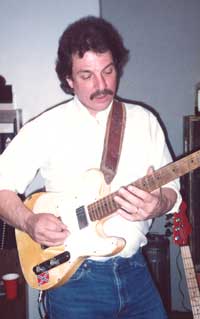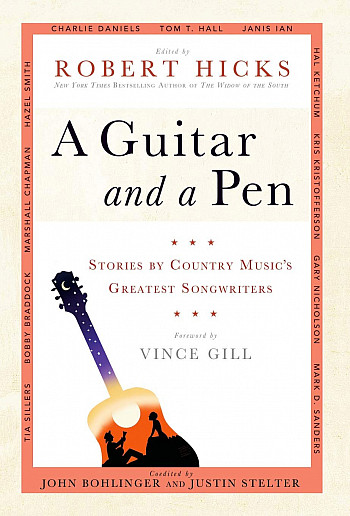HAL KETCHUM singer-songwriter
HAL KETCHUM talked to Shawna Otega for Songfacts
reporting by Norman Warwick

The song Past The Point Of Rescue that Hal Ketchum recorded was actually written by Irish artist Mick Hanly, who had just joined the wonderful rosta of singer-writers being developed the excellent RoundTower label, that already had the likes of Tom Pacheco and John B Spencer and Katy Moffatt signed to them. A taped copy of the song, whether by Mick or by Mary Black who had also recorded it, if memory serves, that had been left on a producer´s desk in the vague hope he might play it, was presented to Hal as a potential cover. Suddenly the song was climbing the America country charts, and I still remember the thrill and baited breath when it reached number two. Those of us like myself, and Ian Johnson of Stampede Promotions who promoted some of their artists, prayed that the song would break to the very top the following week, and so shine a sidelight on all that Roundtower, and Mick Hanley in particular, were achieving. That didn´t quite happen as the recoding of Hal´s stalled at number two and then dropped.
Still, Mick didn´t do too badly out of the song as an early line up The Dixie Chicks also recorded it, after Mary Black had enjoyed a hit with the song which she also included on her biggest selling album No Frontiers. Mick had, in the 1970s, formed several folk music duos, first with Mícheál Ó Domhnaill, then with Andy Irvine and, more recently, with Dónal Lunny. From 1982 till 1985, he was a member of Moving Hearts.

Small Town Saturday Night was a collaborative song-write by Pat Alger (right) and Hank De Vito. If you buy one twentieth century cd in the twenty first century make it Seeds by Partick Alger for he wrote some of the best recordings by Garth Brooks. This was the first time working toewgher for Pat and Hank and they were actually racing alongside Hal to write it even as he recorded it, and it was actually the first release off Past the Point of Rescue, Released in April 1991.
Hearts Are Gonna Roll, a song co-written and recorded by Hal with Ronny Scaife, was released in February 1993 as the second single from his album Sure Love. The song reached number 2 on the Billboard Hot Country Singles & Tracks chart in May 1993.
The title track of Sure Love, another Ketchum collaboration, was released as a single in 1992.
The final track of my top five Hal Ketchum recordings, I Know Where Love Lives, is a solo-write by Hal in October 1991 as the second single from his album Past The Point Of Rescue. The song reached number 13 on the Billboard Hot Country Singles & Tracks chart in early 1992.

That´s a pretty low return to be honest. To have only five songs in my collection by such a writer and performer who has retained such a presence for so many is something I should be ashamed of, and that point was devastatingly brought home to me when, on learning of his death, I turned to an interview he had conducted some years ago with a journalist from Songfact, and the journalist quite forcibly reminded me that there were more than several songs I had overlooked for years.
The journalists at ´Songfacts´ who collect and publish interviews with leading players in the music industry, and in particular from its country genre, are empathetic and sympathetic questioners, but as Shawna Oretga´s interview, from which we have extrapolated this article, they do reach the heart of the matter.
As much as I worry about died in the wool country and western being filed under Americana, there are country music purists who rail against the labelling of some of the musicians I call Americana being found on the same shelves as anything approaching the country music genre. However, if there were a venn diagram drawn of this confusion there would a small shaded portion, and in there, surely, would be the name of Hal Ketchum. who died on November 23, 2020 at 67.
Although he had given an interview to Songfacts in 2009, and talked about battling alcoholism and multiple sclerosis, his death, some eleven years later was caused by dementia.
Kickin’ it old school, as songfacts, described him Hal drew inspiration from the bottom of the string of bottles floating in his wake, from his on-going struggles with multiple sclerosis, from his children, and perhaps most intriguingly, from Christopher Walken. And in so doing, he’s put the Western back in country music.
Shawna Hansen Ortega of Songfacts, ignoring what I consider to be some of his hits told Hal that she was curious about his song I Miss You Mary.
Hal Ketchum: Mary is about an experience I had in Northern California. I was in a bar called the Orchard Inn. And there was a gentleman in there that was kind of reminiscing about having left his wife and child, 40 years to the day. So that was the crux of that piece. I went back to Texas, sat down at a table, and it just kind of occurred to me, that whole piece just kind of fell out on the paper. I like that song a lot.
Songfacts: In the song you talk about how you go off and send money back. Is that like child support?
Ketchum: Well, I don’t know. Maybe so. Of course, this fellow was really old, so back in his day that probably wasn’t the case. It was just something he did.
Songfacts: Do you know any more about his story?
Ketchum: Well, no, I don’t know what the crux of that is, other than this is a man that, although he left, he would work hard, draw pay down on the docks and send it off to Mary. The right thing to do.
Songfacts: Do you get a lot of your song ideas from sitting down and having conversations like that?
Ketchum: Oh, absolutely. People are full of stories. We all have stories, we all have heartache, and we all have sadness and we all have joy. Golden moments. You never know. I just kind of stay open to it. Have a lot of great dialogues with people. Just kind of occur. Could be on an airplane, could be anywhere. Backstage somewhere. You realize everyone has a story, a child with cerebral palsy, or some great loss in their life, or some great gain. You just never know.
Songfacts: Are there any conversations that have struck you, that are particularly memorable to you for a certain reason?
Ketchum: I think they’re more just kind of a composite. I just gather up information until something occurs to me. I’m trying to think of a specific incident that might relate to a specific song. But I’m a little addled, I don’t know if I can do that at my age. I could hide my own Easter eggs at this point. A bit fried. I walked around looking for my cell phone the other day and I realized I was talking on it. It’s come to that. Somebody will call and I’ll say, “Sorry, I can’t talk to you right now, I’m on the phone.” That’s a little scary, isn’t it?
Songfacts: What is it called – age-activated attention deficit disorder? AAADD. (laughing)
Ketchum: (laughing) Right. Brought to you by AAADD.
Songfacts: That’s right. Okay, can you tell me about The Unforgiven?
Ketchum: “Unforgiven” is really my story. I have issues with… if I drink it all goes south. Always has, always will. I have a litany of situations that applies to. I have a chemical in my brain called PHIQ, and if I have a drink, I must have more. It’s just out of my hands. And if I would only play the tape all the way to the end, I wouldn’t get in some of these scrapes I get into.
Songfacts: What is PHIQ?
Ketchum: It’s just some kind of brain chemical that, once it’s activated, it just says, “You must have another.” There’s no such thing as one. It’s a chemical imbalance, and it’s a disease. Alcoholism is a disease.
Songfacts: Is that something that you’d be predisposed to? I mean, you’re either born with it or you’re not?
Ketchum: I don’t know, really. I think some of us are chosen. Goody.
Songfacts: So does that prevent you from imbibing?
Ketchum: It does. Yeah. I try to stay close to the program, abide by the rules.
Songfacts: That’s probably a good thing. Any particular incident, though, that sparked this lyric for Unforgiven?
Ketchum: Oh, no. No. Well, yeah, I guess maybe. Sitting out on a window ledge one night. Like a hawk. Sat out there for about six hours. It was a pretty narrow ledge. “Pistol in my pocket, whiskey in my face. I guess this time the devil sent a bottle in his place.” That’s what it’s about.
Songfacts: The “sickest song” you’ve ever written. Tell me where that came from.
Ketchum: Continental Farewell comes from a character on Saturday Night Live, called The Continental, Christopher Walken. It’s Christopher Walken in a hotel room, in a smoking jacket, with a Hungarian accent trying to lure this woman to the room. And it’s a handheld camera. So you never see the woman, it’s from her perspective. All the tricks he’s trying to play to keep her in the room. “Champagne?” it’s a fantastic piece. So that sort of inspired it. And I wrote it with Jim Riley, who’s just a sick funny individual. We’d been trying to write love songs, and we’d written a couple, pretty skanky love songs, they weren’t really going anywhere. And then that idea just kind of presented itself. So we went with it.
Songfacts: And you have such a good time playing that, performing that.
Ketchum: Oh, it’s hilarious. I keep it in my back pocket, and pull it out at a certain time in the show where it’s just absolutely appropriate.
Songfacts: Can we talk about Yesterday’s Gone?
Ketchum: That’s for my Grandfather Ketchum, he was a wonderful man. Just the whole process of coming to the end of one’s life. He passed years ago. That’s the man I envisioned when I wrote it. He was a true character.
Songfacts: And did he wind up in a retirement home?
Ketchum: No, he did not, actually. He passed at home. And it just seemed appropriate.
Songfacts: Tell me about the line where you say, There’s a picture in Salem of a dashing young cowboy.
Ketchum: I might have written it another way. That happens a lot – I get bored with a lyric and I change it from time to time. And no, he wasn’t a cowboy. They’re composites inspired by certain human beings, and then I just kind of find words that keep the thing moving. He was a great man, and it was a passing, and I’m just kind of honoring that process with some grace.
Songfacts: Again, another line, Where’s the angels sent down to protect him? Did you really feel like that? Like he was deserted?
Ketchum: On some levels, I guess so, yeah. I just set up the next line, too. “Where are the angels sent down to protect him? Am I all that’s left of his life?” It’s kind of a protective statement, if you think about it, because I’m sure there were angels protecting him the whole way. But it sets up the singular for the other character. “Am I all that’s left of his life?” Sort of a why now, why him? Why, Lord, why? Self pity. It’s a self pity line. And it’s total bull. We’re surrounded by angels.
Songfacts: I’d love to ask you about “Poor Lila’s Ghost.”
Ketchum: That was on a CD entitled One More Midnight, which was released only in England by Curb Records, and then they closed their British office about a year ago. So it’s virtually unavailable. Poor Lila’s Ghost is a 14-minute live performance of a real kind of Appalachian piece, would be the best way to describe it.
I was raised on Blue Ridge stone, solid as my maker’s
My daddy took the Devil’s hand, my ma the undertaker’s
I was raised on Cherry Hill by Granny White and Whistlin’ Bill
Always did as I was told, never thought they’d lose their home
Til I started passing time down the road in Lynchville
Now Lynchville’s gotten mighty big, sells their whiskey by the swig
No place for a simpleton, a tree-lit boy like me
I started seeing Lila then, thought the party’d never end
But a youthful heart and an empty head make sorry company
It just kind of goes on and on. I was recovering from exacerbation from multiple sclerosis when I wrote that. I was bedridden for about three weeks, and paralyzed. So I just started writing this thing. I thought, Well, I’ll do the natural formula, two verses and a chorus. And it just kept going, so it’s about 26 verses long. It’s a cool piece. I actually recorded it with the best old-time music bluegrass players available, so I’m very happy it’s been received as well as it has.
Songfacts: And as long as it is, are you able to play it on stage much?
Ketchum: You know I haven’t. I do it a capella once in a while. It’s pretty cool.
Songfacts: Okay. Could you take me through where your head was at when you wrote Hearts Are Gonna Roll?
Ketchum: I wrote that with Ronnie Scaife, and we were talking about our daughters growing up, and the aspect of the boys coming around, and all that aspect of it. So I guess that was the source of that one. The beauty of that is when the royalty checks started coming in, I put the money away, and Ronnie bought a new transmission for his race car. He had a race car called Hellbilly. Runs down in the heart of Tennessee.

photo 4 Hit country songwriter Ronny Scaife died in 2010 age 63. The creator of such hits as The Whiskey Ain’t Workin, and Hearts Are Gonna Roll, suffered a brain hemorrhage at his home in Perry Country.
Songfacts: And how old were your daughters when you guys were talking about this? When you wrote this?
Ketchum: Oh, well, I bet that’s 15 years old. I had one older daughter at that time, before the other ones came along, actually.
Songfacts: Have they kind of lived out this song, then? What’s that like for a daddy?
Ketchum: Well, it is what it is. Boys come around.
Songfacts: You ever want to sit there with a shotgun on your knee?
Ketchum: Well, I’ve got a line that I use: “I’ve been to prison and I’m not afraid to go back.” Seems to work. (laughing)
Songfacts: Does it embarrass your daughters?
Ketchum: No, not much. That’s a father’s right. His privilege.
Songfacts: I assume you go by your own experiences from when you were that age, and you say, “I know where you’re at, boy.”
Ketchum: What the boys want, yeah. What we fellers want. I know what they want.
Songfacts: Tell me how your latest album Father Time came about.
Ketchum: I decided to go in and cut live to 2-track. I mean, I talked to some friends about it, and it just seemed like a real good idea to try it without any Pro Tools, without any multi-tracking and going back and overdubbing. It just seemed like, Let’s see what happens here. Let’s try to do this and see where it goes.
And so I got some of the greatest players and singers in Nashville. And we all got into kind of one big room. And I started cutting. And it just worked. The first song is a first take. It was one-take. The second song, “Yesterday’s Gone,” is one-take. Third song is one-take. It’s just, I mean, first-takes. These guys and girls are such great musicians and singers that it just felt so alive. And it’s a live record. I guess there’s truth in advertising. It is what it is. It really stands up in that sense. Just as live as it could be.
It’s a very good attempt at what occurred, because of the quality of these players. I owe it all to those players. Craig White did the engineering on it. He’s working the board as the song’s going down. It’s old school. It’s the old school way. I’m old school. I don’t even have a computer.
Songfacts: It’s the 21st century.
Ketchum: I know. Most people have all them talkin’ machines. Fantastic.
Songfacts: So you do all your writing in long-hand then? Just on pen and paper?
Ketchum: Pen and pencil never crashes.
Songfacts: That’s a good point. Tell me about “two-track in two days.” Did it just take you two days to do this CD?
Ketchum: Yeah, just two days. I cut nine the first day. Scrambled around and figured out what I wanted to cut, and then cut the other five the next day. It was very exciting. It was a lot of fun.
Songfacts: Were you trying to do that in just two days? Or did it just happen?
Ketchum: Well, I blocked two days. That’s really all the time we thought would be required. Again, with the quality of these players, it wasn’t really a question of whether it would work or not. It was a very enriching experience for me.
Songfacts: And you wrote these songs yourself, for the most part?

Ketchum Yeah, I wrote all but one. I cut Jersey Girl, the Tom Waits song, for my wife. She’s from Jersey, so it seemed appropriate. Bruce Springsteen cut it, did a great version of it. I cut it more like kind of a western swing. It’s really a nice version.
Songfacts: Why the song The Sparrow? And the mention of Harper’s Ferry, in particular?
Ketchum: Well, I’m not sure why Harper’s Ferry. It just kind of occurred to me that that was a good word to use in there. That’s a Civil War song, obviously, but it’s really about all wars. It’s about all wars. And it’s my inclination sometimes to imagine a character and let the character kind of lead me through it. I try to stay out of the way.
Songfacts: The song Invisible off of that album, very touching.
Ketchum: Thank you. Well, that’s just a song about a guy on the corner. “There but for the grace of God go I.”
Songfacts: Do you do charity work for the homeless?
Ketchum: I don’t do enough, let’s put it that way. I need to do more. I’ve done a number of events, charity events. It could be any one of us out there. They’re just displaced folks trying to get by.
Songfacts: Have you ever sat down and talked with any of them?
Ketchum: Actually, yeah, I was under a bridge out in California one time. There were five or six people, and they were just folks, they were trying to figure out where their next meal was coming from.
Songfacts: Hal, are there any other songs that you would like to mention, put a spotlight on?
Ketchum: Strangest Dreams, which is the last song on the Father Time record, is one that I’d written years ago with Rivers Rutherford, and we both love it, and we pitched it to a bunch of people, and it never got cut. So I just thought it would be honourable to let it see the light of day. I love that song. It’s a wonderful song. It’s about losing a love.
Yesterday the world stood still, sun was setting on the hill
The sky was blue, the grass was green, we made love in Portuguese
Suddenly I realized somehow I’d learned to fly
Took off like two young swans headed for the great beyond
Sometimes I have the strangest dreams
Heaven finds me in my sleep
Some sweet angel carries me away
So it’s about a dream, basically, about waking up and realizing the woman isn’t there, hasn’t been there for years. It’s a sad love thing.
Songfacts: One more thing I wanted to ask you about is your story, The Clock Struck Nine.

photo 7 Ketchum: I was asked by Robert Hicks to write a contributive story to this book. And I sat down and did kind of a real-time thing about this girl who’s decided she’s gonna be a martyr, suicide bomber. And she’s going into a train station just to explode. And it’s just the story of that not occurring by divine intervention.
Songfacts: Do you write a lot of short stories?
Ketchum: I do, actually. Yeah, I’ve got a pretty good pile going right now. My goal is to speak them and develop like a CD, or maybe just put them on my Web site, something like that.
Songfacts: That book was such a fabulous idea.
Ketchum: Yeah. It’s called “Guitar and a Pen.” It’s a wonderful book.




Leave a Reply
Want to join the discussion?Feel free to contribute!